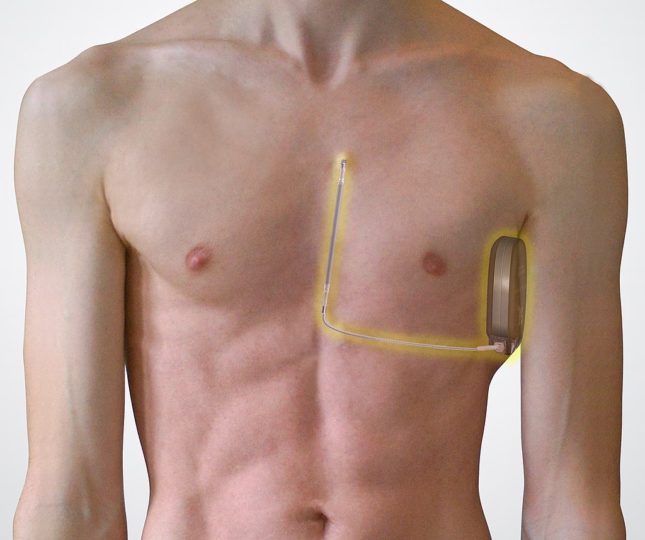Cardiac arrests sometimes seem to happen out of nowhere. These extremely dangerous life-threatening events sometimes follow a long disease, but can sometimes be kind of hidden and unpredictable.
However, a new artificial intelligence-based approach, developed by a team of scientists led by the Johns Hopkins University, could predict potentially life-threatening arrhythmias.

Medical professionals are concerned that due to difficult diagnosis defibrillators are sometimes given to those who do not need them. Image credit: Robystarm07 via Wikimedia (CC BY-SA 4.0)
Sudden cardiac death is actually relatively common, amounting to 20% of all deaths worldwide. Such death is caused by arrhythmia, but the mechanism itself is mostly unknown to us. We don’t really have reliable ways to assess the risks, which means that there are patients who are getting defibrillators implanted into their chests without a real need for them.
And at the other side of the table there are patients of arrhythmia who could benefit from defibrillators, but are not getting them. Essentially, we need better methods of assessing who is at most risk of life-threatening arrhythmias causing a sudden cardiac arrest.
And so scientists developed a technology known as SSCAR – Survival Study of Cardiac Arrhythmia Risk. It is an artificial intelligence-based technology, which analyzes cardiac images to identify scarring caused by heart disease. SSCAR then uses this information to predict the risk of arrhythmias that could cause cardiac arrests. And SSCAR is very accurate – those predictions are more accurate than what a doctor can achieve.
Scientists fed SSCAR with hundreds of contrast-enhanced cardiac images from real patients to train the algorithm to recognize certain patterns. And it is able to do that – SSCAR can recognize patterns and relationships between them that are not visible to the human eye. The accuracy and speed of such diagnosis are impressive and could be life-saving for thousands if not millions of patients.
AI is coming into the field of medicine big time. It is offering huge advantages because it is able to analyze huge sets of data very quickly. AI can also recognize minute patterns that would slip through the human eye and mind. Scientists are extremely excited about the opportunities AI will offer and you just have to understand that AI is not going to kick doctors out of their jobs.
Natalia Trayanova, senior author of the study, said: “This has the potential to significantly shape clinical decision-making regarding arrhythmia risk and represents an essential step towards bringing patient trajectory prognostication into the age of artificial intelligence. It epitomizes the trend of merging artificial intelligence, engineering, and medicine as the future of healthcare.”
Source: Johns Hopkins University
